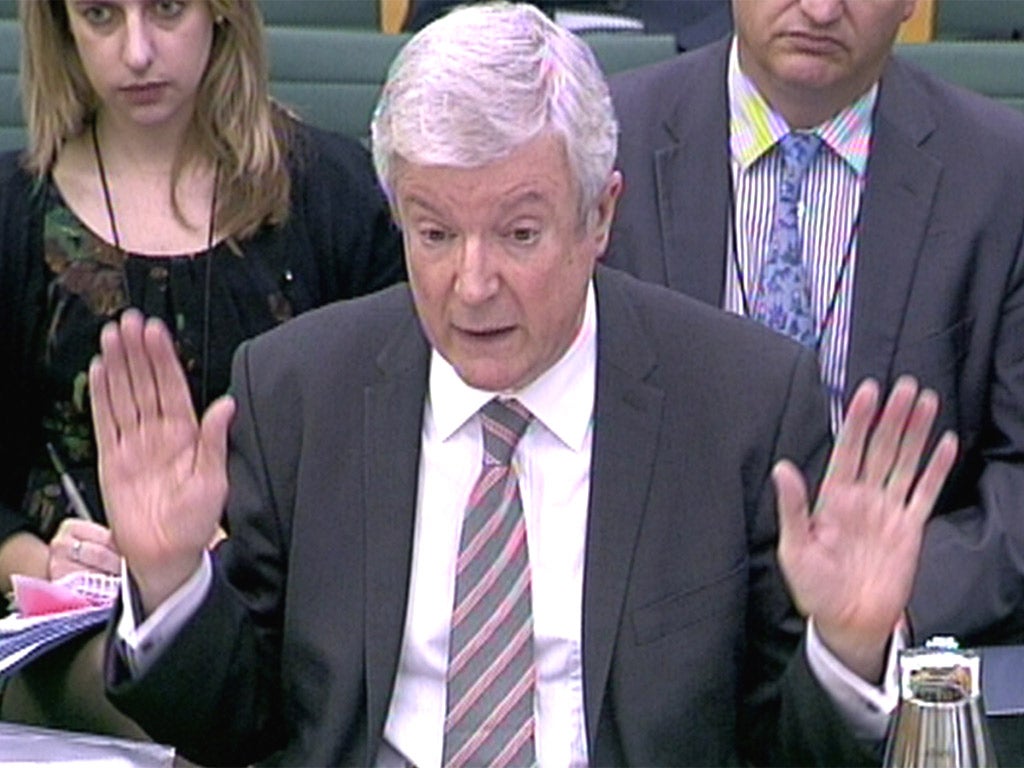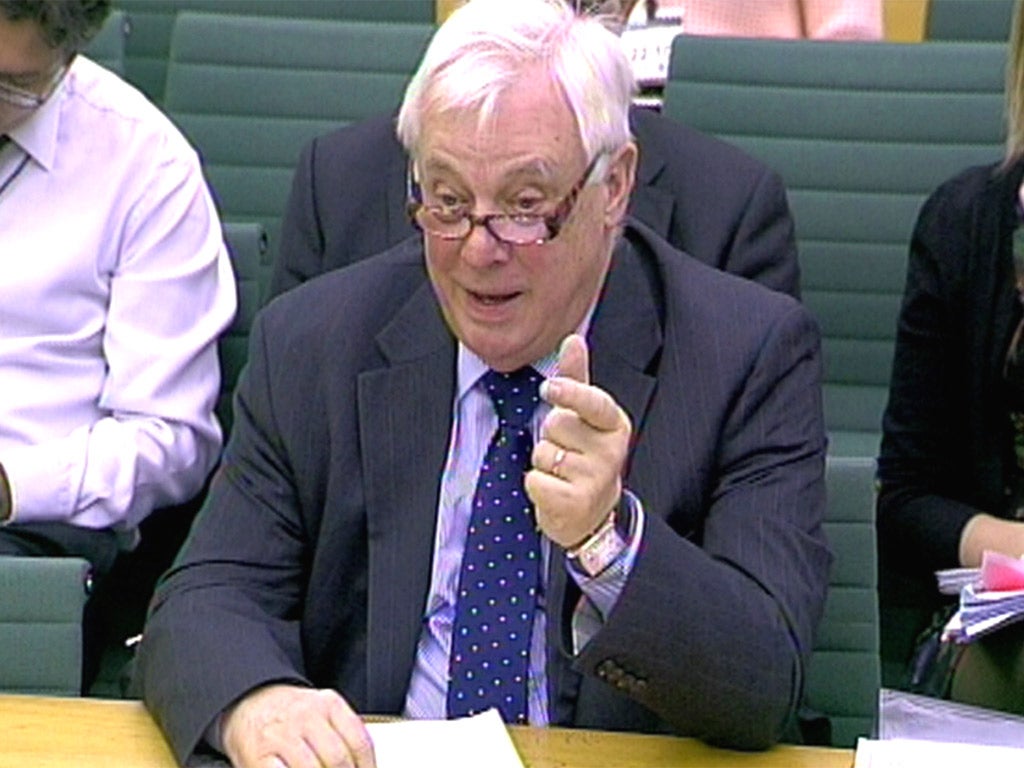Lord Hall: BBC executives face disciplinary hearings over alleged bullying as senior employee leaves over harassment claims
Some of those accused are facing upwards of 20 allegations

Your support helps us to tell the story
From reproductive rights to climate change to Big Tech, The Independent is on the ground when the story is developing. Whether it's investigating the financials of Elon Musk's pro-Trump PAC or producing our latest documentary, 'The A Word', which shines a light on the American women fighting for reproductive rights, we know how important it is to parse out the facts from the messaging.
At such a critical moment in US history, we need reporters on the ground. Your donation allows us to keep sending journalists to speak to both sides of the story.
The Independent is trusted by Americans across the entire political spectrum. And unlike many other quality news outlets, we choose not to lock Americans out of our reporting and analysis with paywalls. We believe quality journalism should be available to everyone, paid for by those who can afford it.
Your support makes all the difference.At least three BBC executives are facing decisions on disciplinary hearings over alleged bullying as the Director General told MPs today that one of his senior staff had already left the organisation over harassment claims.
Some of those accused are facing upwards of 20 allegations and have been moved to new jobs pending the outcome of the disciplinary process.
Lord Hall told members of the select committee on Culture, Media and Sport that one individual had already left the BBC and that he was poised to implement a clear out of inefficient managers in a separate exercise which he said would create a “simpler, slimmer BBC”. He decried the existence of “sideways” managers, which he defined as “people not adding value to the process of getting great programmes onto the air”.
Lord Hall is also set to publish a damning report by accountants PWC into a disastrous BBC Digital Media Initiative (DMI) computer project which wasted £100m. The flawed technology project became known inside the BBC as “Don’t Mention It”. Lord Patten, the chair of the BBC Trust, told MPs that he expected that culpability for what he described as a “pretty lamentable story” would be “fully explained” in the PWC report.
In evidence to the committee, Lord Patten graphically described how the Trust had become aware that something was going badly wrong with DMI, which became subject to what he called a “red warning”. He said further concerns were aroused by the evidence of a whistle blower and then last year through information provided to the Trust by senior BBC figures being interviewed for the role of Director General.
The BBC Trust chairman said he was “so alarmed” by the state of DMI that he wrote to Parliament’s watchdog - the Public Accounts Committee (PAC) - and the National Audit Office. He also ordered a review by consultants Accenture and demanded that “no more money was spent on [DMI]”. The controversial project was launched in 2008 by the BBC’s technology chief Ashley Highfield, now the CEO of publishers Johnston Press, with the aim of modernising the BBC’s production and archiving methods.
Lord Patten told MPs: “This shouldn’t have happened at the BBC which has always prided itself on being a pretty good engineering company.”

When Lord Hall took up his role in April he considered the Accenture report and immediately decided to completely shut the massive technology project down. “It was clear to me that the DMI initiative was going nowhere,” he said.
The PWC report is likely to set out which of the BBC’s executives approved the development of the DMI project at various stages.
Earlier this year The Independent disclosed how figures as senior as former Director General Mark Thompson and former Head of News Helen Boaden attended authorisation meetings on a smaller but equally unsuccessful technology project called Socrates, which was supposed to use artificial intelligence to translate news from around the world but closed at a cost of £8.3m without ever becoming operational.
Mr Thompson, the CEO of the New York Times Company, was recently called before the PAC to answer questions about excessive executive pay-offs at the BBC under his stewardship. He will face further scrutiny over his management of the DMI fiasco.
Asked who was to blame, Lord Patten said: “The management of a project like this is an issue for the executive of the BBC.”
But the BBC Trust chairman surprised observers when he appeared to excuse the BBC’s overspending by £3.8m on executive pay-offs. “It is about what other TV networks would pay for televising the first half of a Premiership football match,” he noted.
Join our commenting forum
Join thought-provoking conversations, follow other Independent readers and see their replies
Comments